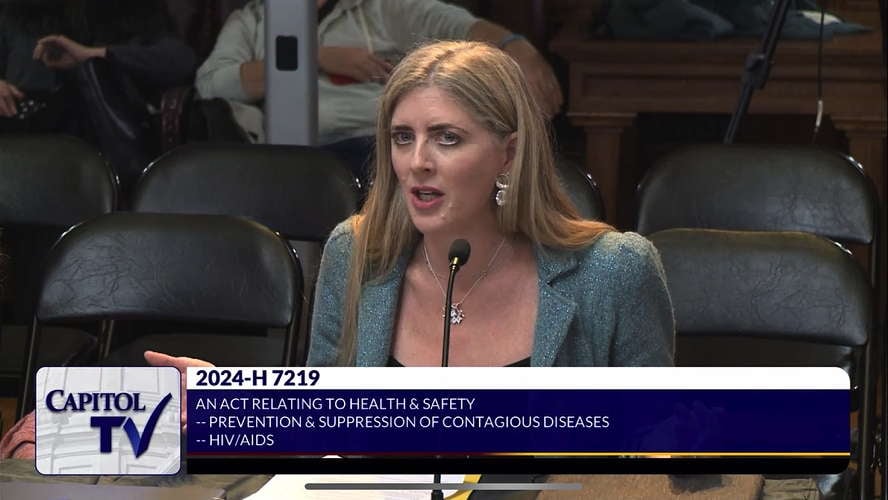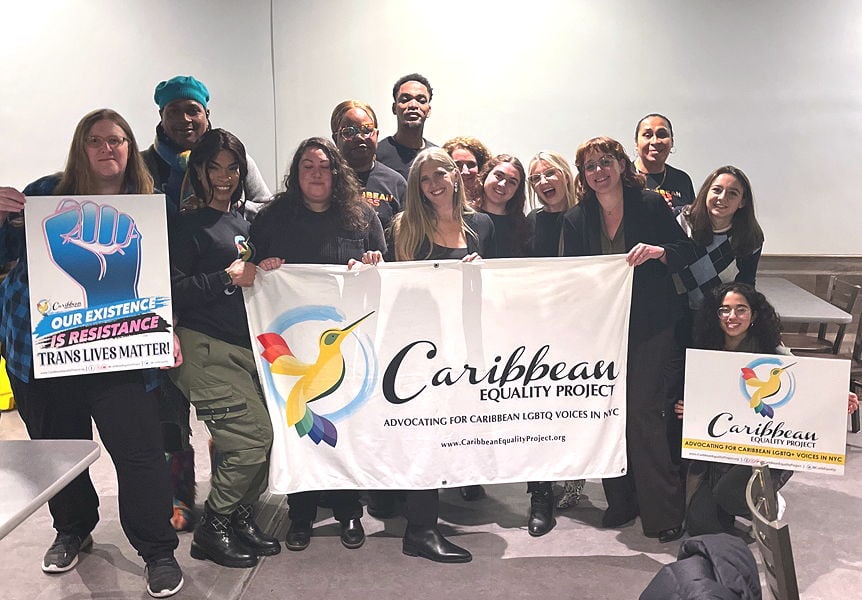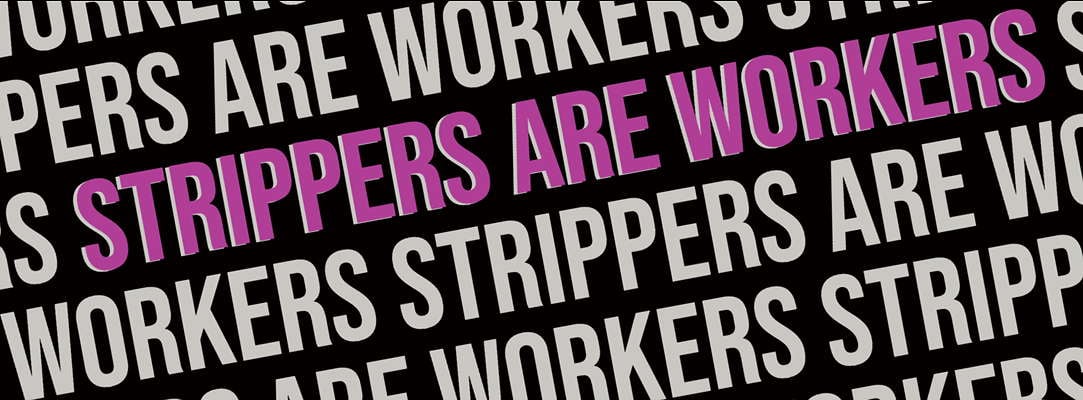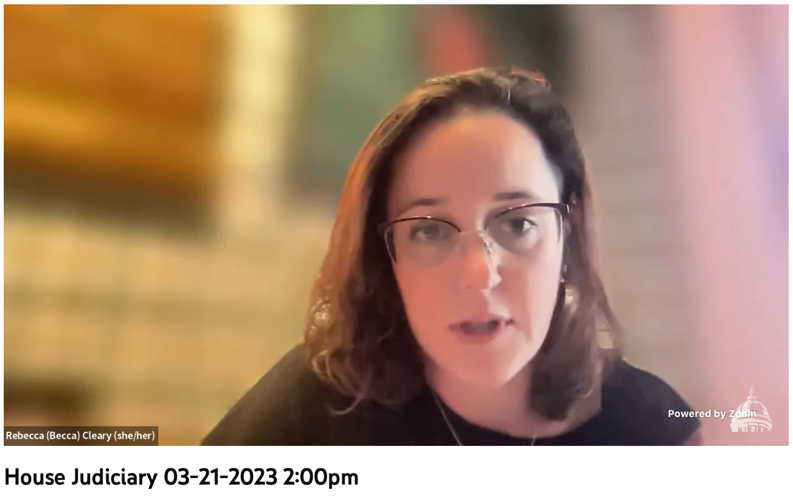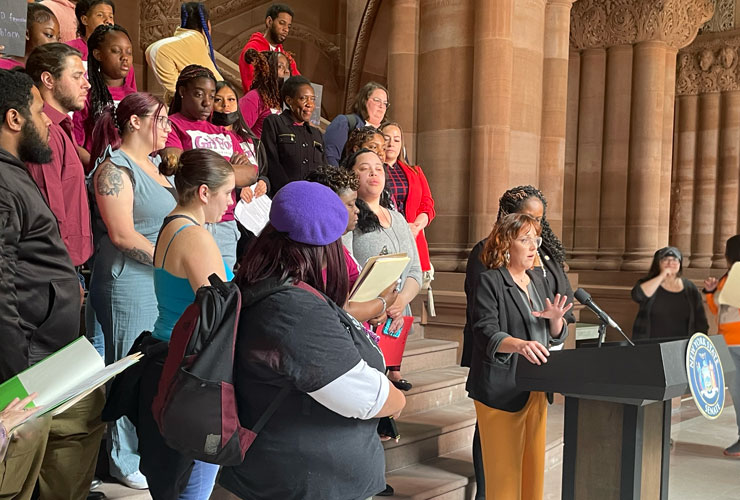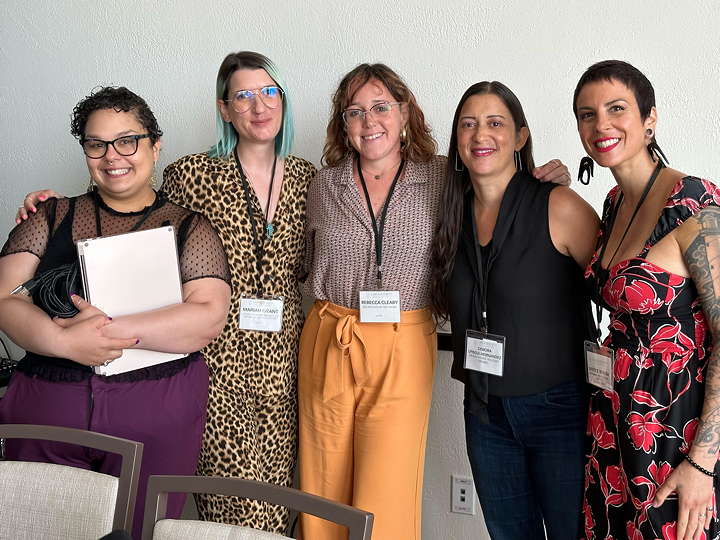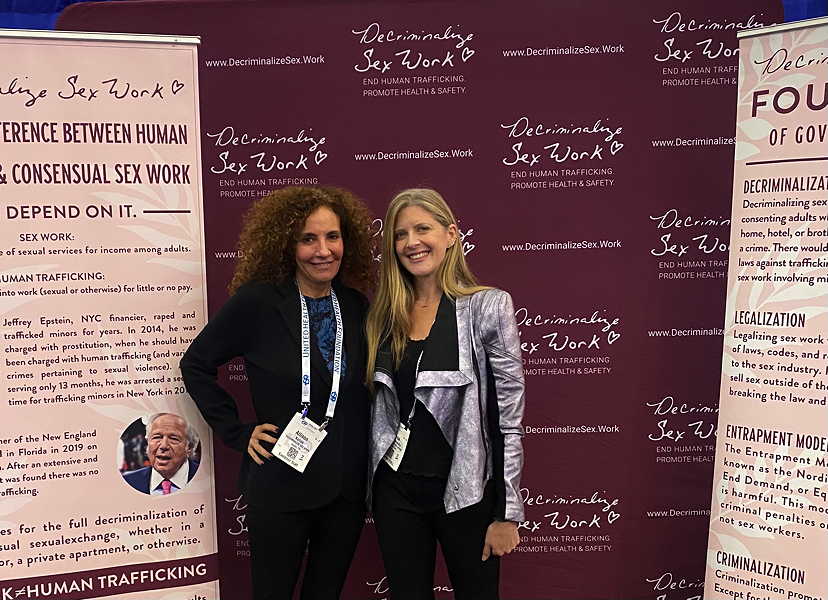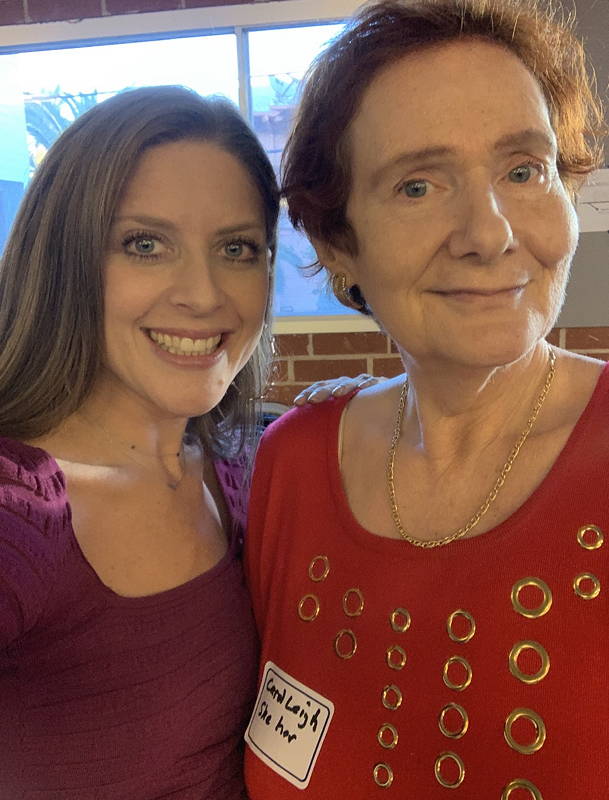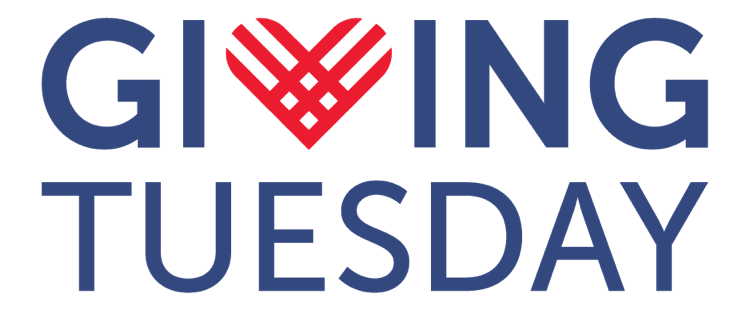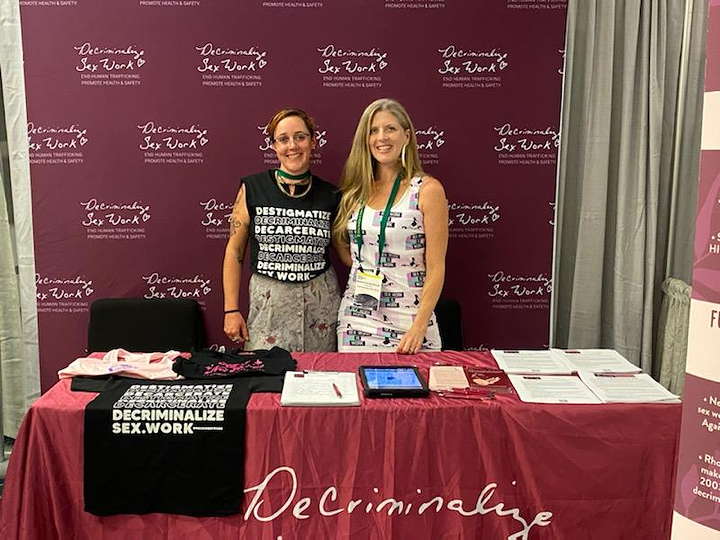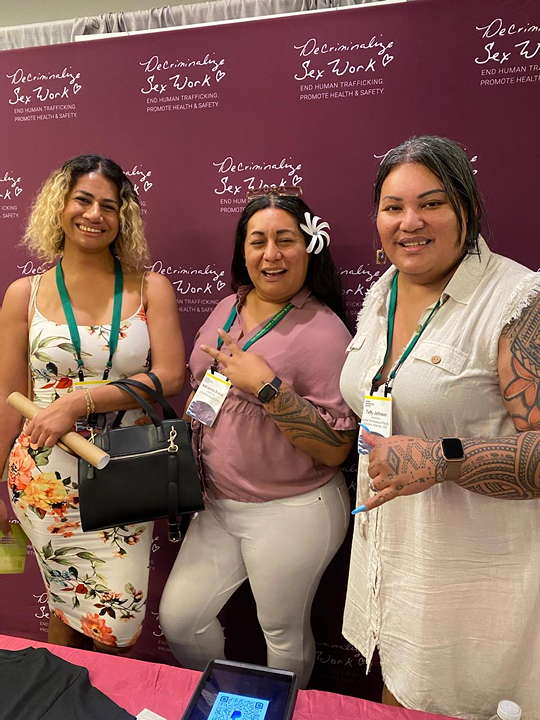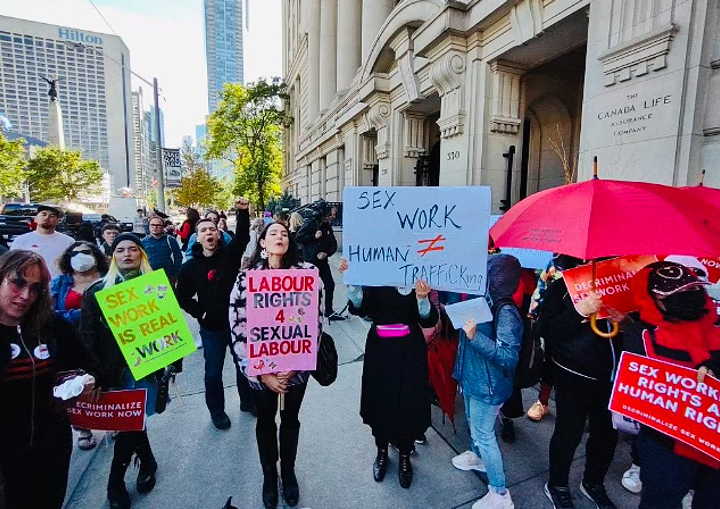April 4, 2024
Decriminalize Sex Work (DSW) advocates testified in front of the Rhode Island Senate Judiciary Committee in support of four bills critical to improving health and safety for sex workers and survivors of trafficking. DSW Legal Director Melissa Broudo, Community Liaison Henri Bynx, Staff Attorney Rebecca Cleary, and Volunteer Attorney Alison Kolins joined advocates, including representatives from the ACLU and Amnesty International, to ensure legislators have the facts necessary to make sound decisions.
They testified in support of the following bills:
S2225, “An Act Relating to State Affairs and Government – Corrections Department”
S2225 repeals provisions that assess additional fees to those convicted of prostitution-related offenses and repeals the crime of loitering for prostitution. An arrest already creates numerous financial hardships and adding a significant additional financial burden to someone who is arrested can be devastating. This bill also repeals Rhode Island’s “Loitering for prostitution” law. Loitering for prostitution laws have been repealed in New York, California, and Seattle, Washington, citing evidence that these statutes are disproportionately enforced against communities of color and transgender people. Because the law is constructed so vaguely, it allows law enforcement to rely on their assessment of an individual’s appearance when determining if they are in a public place for the purpose of prostitution. Biases greatly influence their judgment. This leads to unnecessary criminalization of communities that are already marginalized. Additionally, this statute is rarely utilized: according to law enforcement reporting on arrests required by Rhode Island law, there have only been two arrests for loitering for prostitution over the past 15 years.
S2441, “An Act Relating to Criminal Offenses – Commercial Sexual Activity”
S2441 grants immunity from arrest and prosecution for certain prostitution crimes to victims and witnesses of crime who report that crime to law enforcement, aid in the investigation of that crime, and/or seek healthcare services in relation to the crime. Immunity protections create an important tool for law enforcement in their efforts to identify and prosecute perpetrators of violence and trafficking. People involved in the sex trade are especially vulnerable to violence and exploitation — but frequently do not report crimes perpetrated against them because they fear arrest. When abusers are not discovered by law enforcement, they are able to continue violence and exploitation with impunity. Thus, immunity policies serve a dual purpose: they allow victims and witnesses of crime to safely seek the services they need, and they provide invaluable tools for law enforcement investigating crimes including human trafficking, assault, and murder. Nine states have recently enacted their own immunity laws, and three other states are considering similar legislation this year. Individuals and organizations with a breadth of priorities and experiences have openly supported these policies across the country. Trafficking survivors, advocates, sex workers, prosecutors, and police departments, among others, have voice support. To make communities safer, it is in the public interest to encourage victims of crime to come forward, aid law enforcement, and receive needed medical care.
S2442, “An Act Relating to Health and Safety – Prevention and Suppression of Contagious Diseases – HIV/AIDS”
S2442 ensures that optional HIV testing is provided to those convicted of commercial sexual activity. Existing law requires all persons convicted under any commercial sexual activity statute to be tested for HIV and authorizes healthcare providers to test them without consent. S2442 maintains existing access to HIV testing, counseling, and treatment for persons convicted of commercial sexual activity but ensures that testing cannot be done without consent. Mandated testing can create additional time and financial burdens after arrest. Those burdens are especially unnecessary for those who may already know their status and receive treatment, which is an unnecessary use of state resources. The Centers for Disease Control and Prevention and the World Health Organization both recommend that testing for HIV never be mandatory, including within vulnerable populations. The principle of informed consent ensures that individuals have agency in their healthcare decisions and leads to better healthcare outcomes because patients are more comfortable seeking care. Under this proposed law, all persons convicted of commercial sexual activity will be provided with an opportunity to be tested for HIV, which maintains the purpose of the existing law — to connect at-risk individuals with critical services.
S2934, “An Act Related to Criminal Offenses – Commercial Sexual Activity”
S2934 would decriminalize consensual adult sex work. Extensive research and evidence shows that decriminalizing sex work will help end human trafficking, improve public health, and promote community safety. Last year, the “Special Legislative Study Commission Ensuring Racial Equity and Optimizing Health and Safety Laws Affecting Marginalized Individuals” specifically recommended that Rhode Island legislators ensure that “private, consensual sexual activity remains out of the reach of criminal laws.” The commission found that the criminalization of sex work “fuels stigma and discrimination against sex workers, which impedes their access to basic necessities, including healthcare, housing, and other social services.” This bill would repeal all commercial sexual activity laws while leaving laws against human trafficking intact, bolstering anti-trafficking efforts around the state. Prostitution laws make it difficult for victims and witnesses to report exploitation without risking prosecution. They also direct law enforcement resources towards arresting consenting adults, limiting their ability to focus on human trafficking. Additionally, when commercial sexual activity is illegal, it continues to happen — but that criminalization leads to unsafe conditions.
This is a critical moment to address the harm caused by the criminalization of sex work. S2934 will create immediate meaningful change for affected communities by addressing a major contributor to mass incarceration, giving sex workers the freedom to support themselves and their families without fear of violence or exploitation, and fostering an environment that allows victims of trafficking to seek safety without risk of arrest. It also has precedent: between 1980 and 2009, indoor prostitution was legal in Rhode Island. During that time period, there was a significant decline in sexually transmitted diseases and sexual assaults within the state.
Staff Attorney Rebecca Cleary traveled to Baton Rouge, LA, to testify before the House Administration of Criminal Justice Committee, on HB 631, known as the Justice for Survivors Act. The bill narrowly lost, but HB 631 would have created new sentencing guidelines for victims of trafficking, domestic violence, and sexual assault who are convicted of a crime related to their victimization. Additionally, it would have allowed currently incarcerated victims to apply for a resentencing hearing under the new guidelines. Cleary testified specifically about how frequently trafficking victims are coerced into committing crimes by their traffickers.
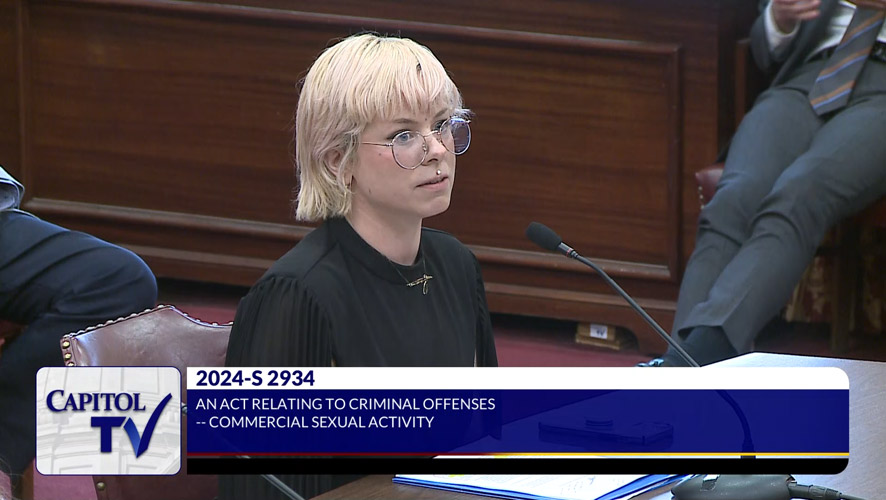
DSW’s Henri Bynx testifies before the RI Senate Judiciary Committee.
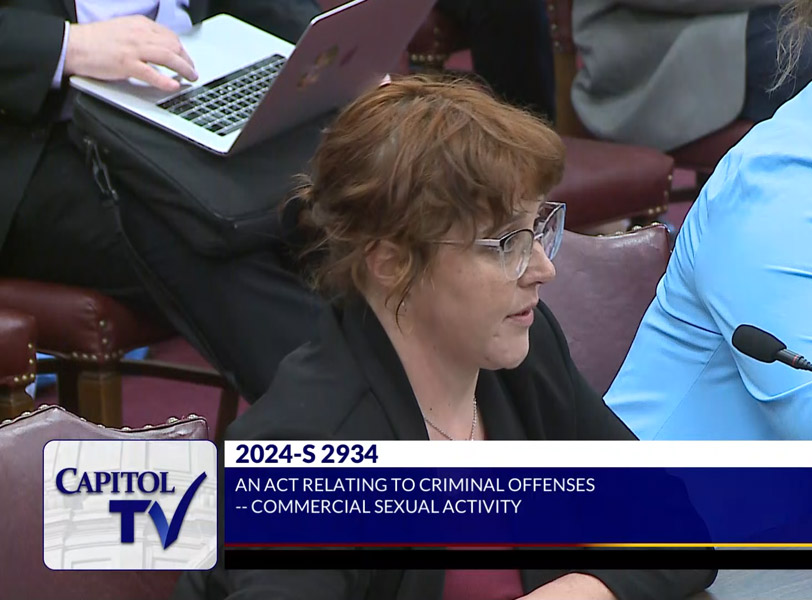
DSW’s Rebecca Cleary testifies before the RI Senate Judiciary Committee.
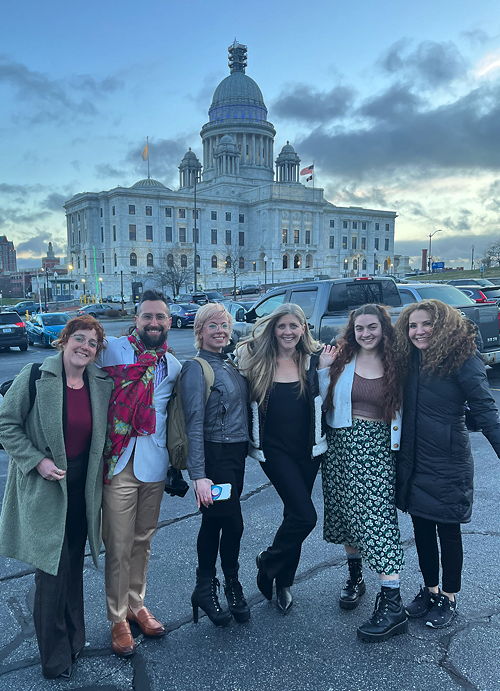
Advocates from DSW, The Ishtar Collective, and Amnesty International gather after appearing before the Senate Judiciary Committee.

DSW’s Rebecca Cleary testifies before the LA House Administration Criminal Justice Committee.
DSW Newsletter #53 (April 2024)
DSW Advocates Testify Around the Country

DSW Participates in Equality New York’s Lobby Day
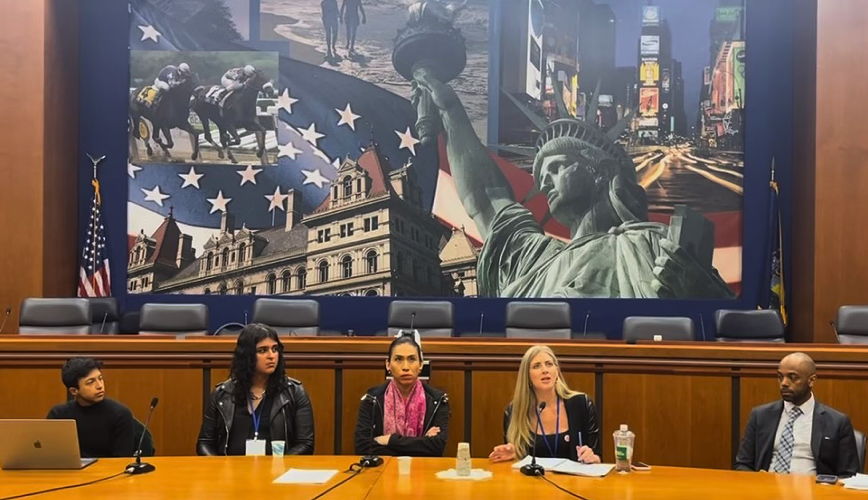
Reason Hosts San Francisco Event With Elizabeth Nolan Brown and Decriminalize Sex Work

“Stealthing” Bill Passes in VT


